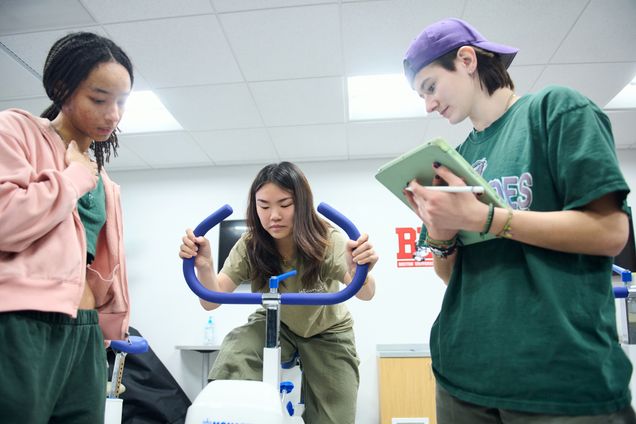Blackboard’s Artificial Intelligence (AI)-powered tools are designed to enhance teaching and learning with meaningful educational value. Key features like the AI Design Assistant and AI Conversation Tools work together to create more engaging, responsive, and impactful learning experiences.
AI Design Assistant
Blackboard Ultra’s new AI features revolve around the AI Design Assistant, which streamlines course creation and content generation. These features include tools for generating learning modules, rubrics, test questions, assignment prompts, and images.
Course Structure Suggestions
Create outlines for course modules, providing titles, descriptions, and suggested images.

Rubric Generation
Generate rubrics for assignments, ensuring fairness and consistency in grading.

Assessment Creation
Generate test questions, assignment prompts, and discussion prompts based on course content.

Image Generation
Generate course banners and learning module images based on descriptions.

Content Generation
Generate content for assignments, discussions, and journals for idea generation and to save time and effort.

Auto-Generated Modules
Suggest a list of modules with titles, descriptions, and images.

AI Conversations
The new AI Conversations tool, built into Blackboard Ultra, is designed to facilitate deeper learning through interactive dialogues that simulate those conversations which may take place in personal, academic, and professional contexts. From a subject perspective, it provides faculty with the opportunity to create AI-driven conversations around discipline-related topics or scenarios, encouraging students to engage in critical thinking and reflective learning across a wide variety of pedagogical contexts.
Role-Playing
Allows you to create simulated conversations and scenarios for students to enhance learning through practice.

Socratic Questioning
Engages students in Socratic dialogue, prompting them to think critically and explore concepts in depth.

Reflection Prompts
Prompts students to reflect on their experience, highlighting strengths, weaknesses, and potential biases.

Instructor Review
Allows instructors to review conversation transcripts and student reflections to assess understanding and provide feedback.

Pedagogical Benefits
Building powerful, learner-centered experiences for the modern workforce
 The integration of the AI Design Assistant into the course-building workflow has significantly streamlined the instructional design process. By automating routine tasks—such as content generation, rubric creation, and question formulation, instructors, instructional designers, and subject matter experts can now focus more deeply on pedagogical intent, which reduces course development time and ensures that learning experiences are aligned with cognitive and affective learning objectives.
The integration of the AI Design Assistant into the course-building workflow has significantly streamlined the instructional design process. By automating routine tasks—such as content generation, rubric creation, and question formulation, instructors, instructional designers, and subject matter experts can now focus more deeply on pedagogical intent, which reduces course development time and ensures that learning experiences are aligned with cognitive and affective learning objectives.
Fostering more dynamic and personalized learning experiences for students
 AI-supported instruction fosters more dynamic and personalized learning by offloading routine course tasks, allowing educators to focus on pedagogy. With foundational elements managed by AI, instructors can design authentic, context-rich learning experiences that mirror real-world challenges and cultivate higher-order thinking. The time reclaimed can be strategically invested in developing adaptive learning pathways, embedding formative assessment, and implementing active learning strategies that deepen student engagement and support meaningful learning outcomes.
AI-supported instruction fosters more dynamic and personalized learning by offloading routine course tasks, allowing educators to focus on pedagogy. With foundational elements managed by AI, instructors can design authentic, context-rich learning experiences that mirror real-world challenges and cultivate higher-order thinking. The time reclaimed can be strategically invested in developing adaptive learning pathways, embedding formative assessment, and implementing active learning strategies that deepen student engagement and support meaningful learning outcomes.
Now that you’ve learned a little bit about AI in Ultra, check out more key features of Blackboard Ultra!
